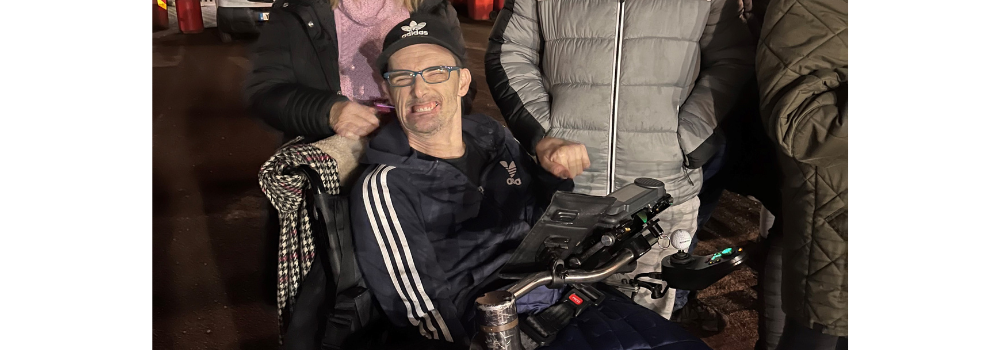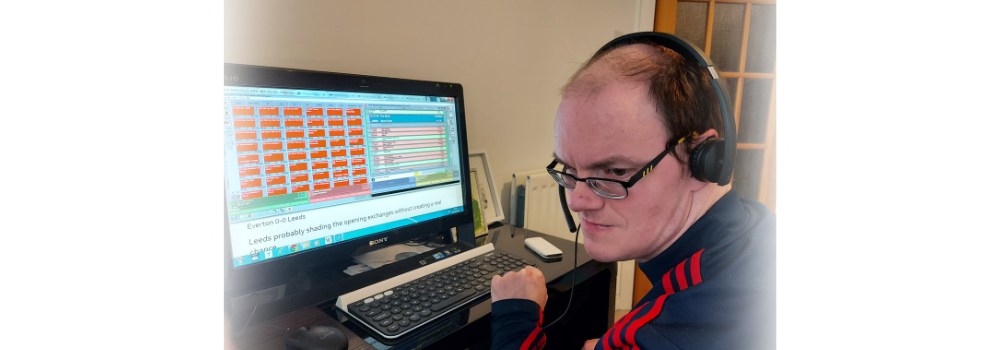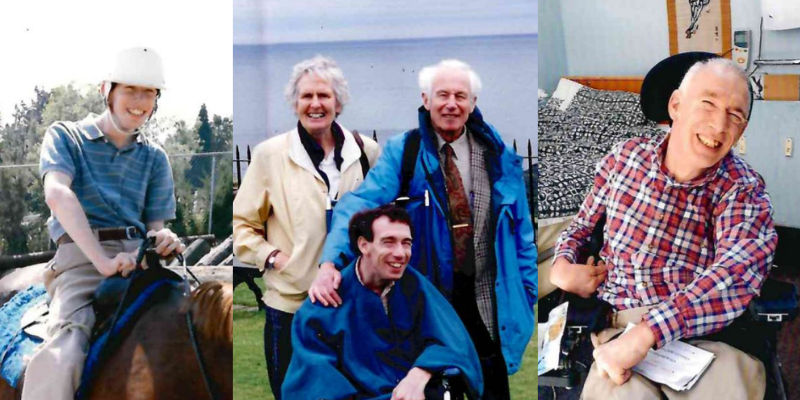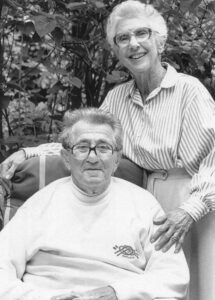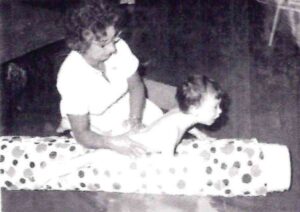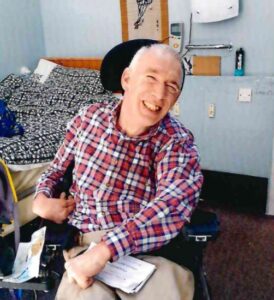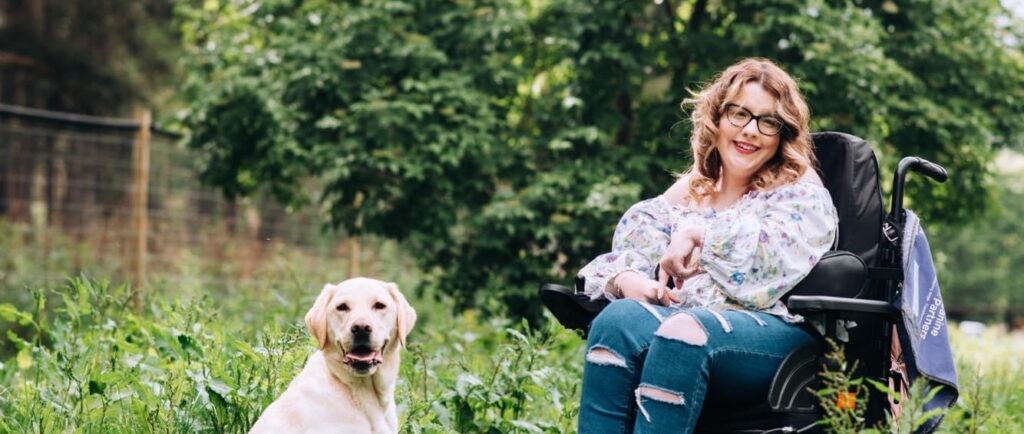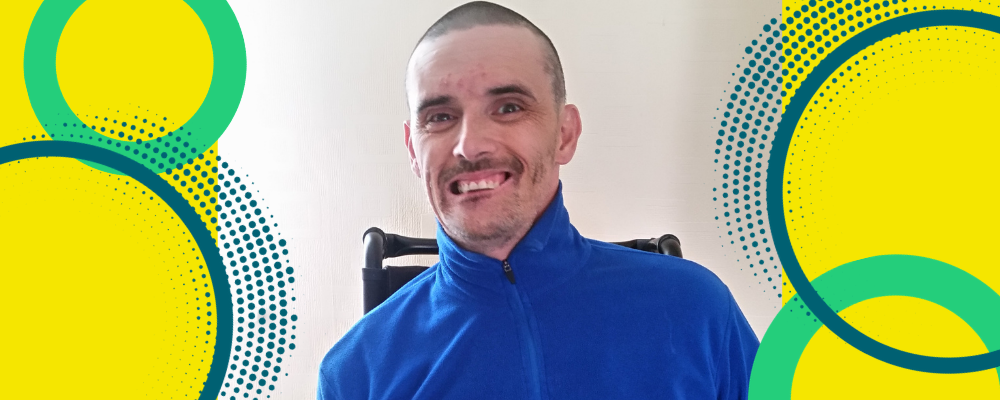As part of cerebral palsy awareness month, Barry writes about the journey he has taken in school and beyond to develop his communication skills.
Who I am and how I am writing this
Hello, my name is Barry Smith, and I am 44 years old. I have cerebral palsy, which is a physical disability. I am in a power wheelchair, and I use a Lightwriter which I will be going to talk about later in this story.
Where I am going to start this story from
Like that song in Sound of Music let’s start from the very beginning, which is the best place to start.
When I were about two years old I met my first Speech Therapist down to I didn’t know how to speak by myself, and when I did no one could understand what I was trying to say to them. So the very first thing she tries to show me to do was how to sign by using my hands, which was down to me having cerebral palsy.
When the Physiotherapist came to see me in my house, one of the very first things she did was teach me how to sit up by myself and how to fall over without hurting myself. She showed my mum and dad what to do with me, as well as bringing a few things what can help me, like a high feeding chair, which supports me to sit in the right way, so people could feed me. Then the physio teach me not put my head back when I was eating.
My family all loved me for who I was and my mum and dad took me out to see all the family.
When the Speech Therapist came back
About a week later, when she came back to work with me again, she asked my Mum and Dad if they could put me in my high feed chair, which had a small table over it. After they got me in it, the Speech Therapist went into a handbag and started to tell us, “I have got a big Bliss Board which has a few signs on it and the word at the top of each one. I am going to try with Barry – if he points with his index finger to the sign and people could read the word on top.”
When she did this, I pick this up like a duck to water. A few weeks later, she came back to check how I am getting on with using this. After she saw how well I was doing with using this, the Speech Therapist could not believe how well I was doing with this, when using this in a little time.
As soon she shows me a little more, she told my Mum and Dad, “I am trying to instruct a young girl around the same age as Barry. When I have seen how well your son is doing, if you both don’t mind, I would like to take Barry to meet her to show her how good he is when he is using his Bliss Board, in the hope she might herself, if he can do it, I can try it.” My Mum and Dad did not even need to think about it because they were so happy I was able to communicate with them, so they told her yes.
Going to meet her
About a week later my Speech Therapist pick me and my Mum up in her car and she took us to the little girl at a playground, where we were meeting. When the three of us went into the hall there were two feeding chairs, which looked like my feed chair at home. As soon we met the girl and the staff member who was helping her, they told us one of the feeding chairs was for me to sit in, and one for her too. So, my Mum put me into the feeding chair, and the person who was supporting her put her on one side of me, we both had the same table over us. As soon we were sitting nicely our Speech Therapist came over and gave us both our Bliss Boards and lay them on both tables, then she stood back and watch what happened with us.
The very first thing I did were to make sure she was watching me, when I knew she was watching what I was doing, the next thing I did were point to a Bliss symbol with my index finger, and the Speech Therapist read it out what I was saying to her. Then I took the girl by the hand to show her she can do the same thing just like me. I used the Bliss Board until my last year of school and liked using it. Now looking back on it people needed to stand over you to see what I was pointing to isn’t good, and as well if the person isn’t able to read they won’t have any idea what you were saying to them.
Getting my Lightwriter
In my last year of high school, I got an SL30 Lightwriter. Because I were starting College the College told me I will need a voice output communication aide if I wanted to do a course at the college. I was going to college one day a week on a school link. Apart from my college day I wasn’t with people who use Communication aids.
When I had just used the Lightwriter for a few days, I remember my class had a class on shopping skills, I remember when I went into the class, my teacher told us half of the class was going to a shopping center and half was going the next week. I was going to the shopping center. The teacher asked everyone before we go on the school bus to take us to the shopping center, we must go to class first because the teacher had things for us to do when we are out shopping. I remember my teacher asked me to get some coffee for the class then she hands me some money to buy it. I asked her who is going to help me to do this. The teacher told me, now you have got your Lightwriter you can ask someone who works in the shop if can they support you in the shop to get you what you need to buy.
So, after I got dropped off at the shopping center, the teacher told all of us we will meet in a Coffee shop after each person from our class group did what the teacher asked them to do. I remember feeling all grown up by this point because this was the first time I were shopping by myself. I had mixed feelings about doing this – I was very happy to do this by myself and as well I was very worried too.
As soon as I got to ASDA I were very worried if I ask for support in the shop they might tell me they won’t help me. But then because I had a speech output voice I also couldn’t wait to ask to see what would happen. When I went up to the help desk, I type into my Lightwriter what my teacher told me to put into it, when the lady who worked in the shop asked me “how could she help me,” I play what I type in back to her.
The lady told me she will get someone to help me with my shopping, and I felt so happy. When I returned to meet my teacher, I thanked her for telling me to do this.
Leaving school
After I left school I got a Speech Therapist from Ayrshire where I came from. The very first thing she did was take the Lightwriter and the things Glasgow give me on a loan, she took it back to give to them. Then the lady gives me the same thing back which was Ayrshire, she told me this is on a long-term loan now. Since that time I move onto Sl35 in 1998 which was a new Lightwriter that has a deep Keyboard and can predict the words what it thinks I want to type into it. I used this for ten years then I got Sl40 Lightwriter. Then I move onto the SL50. Before I go, I would like to make people aware of a communication aid isn’t just for Christmas, it is for people’s life too.
